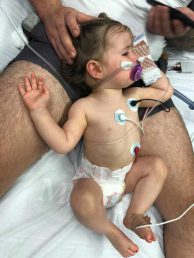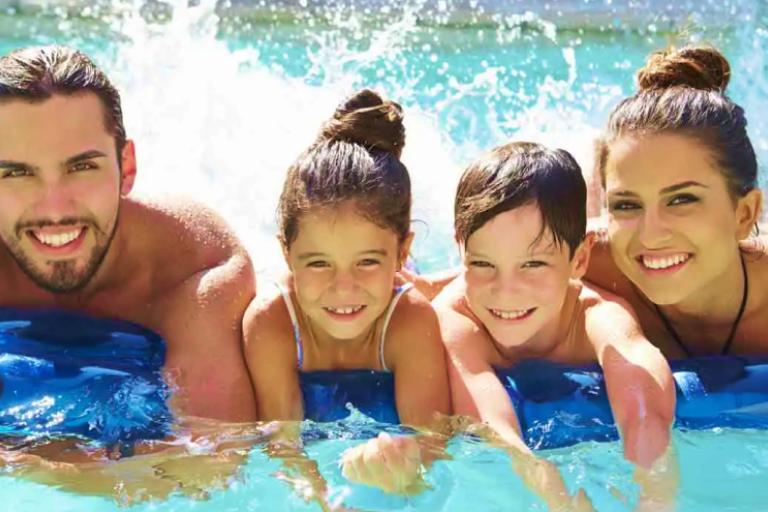Six people sent to hospital following super-dosing accident
Six people were taken to hospital including one child in a serious condition following a chemical incident at Wollondilly Leisure Centre in Picton in Sydney’s west on Monday December 3.
Additionally, more than a dozen people were treated onsite.
Emergency services responded to a call on the Monday morning after reports of people being affected by chemicals in the indoor pool. NSW Ambulance deputy director of critical operations Ian Johns told ABC radio they treated 14 people — mostly young children taking swimming lessons — for health issues caused by the spill.
“It turns out some chemicals were mixed with the pool and some people had an adverse event,” he said. “The chemicals gave off a gas and caused minor breathing and airway irritation and some localised skin and eye irritation.”
One child was considered in a serious condition while two other children and an adult were in stable conditions at Campbelltown Hospital, and another adult and child were taken to Bowral Hospital – also in a stable condition.
Chemical spill during superchlorination
A statement from the Wollondilly Shire Council said there was an operational need to use a super-dose of disinfectant.
It has been reported that the superchlorination was required following a Code Brown event - after a child had defecated in the swimming pool.
“Unfortunately a chemical spill occurred during this process, resulting in fumes, and emergency services were called by the contracted operator of the facility,” the statement said.
“Emergency services have arranged for the observation of those who have pre-existing respiratory issues.”
Wollondilly Shire Council shut down the indoor pool as a precaution, while the rest of the venue remained open.
They released a Twitter statement on Tuesday morning:
“The centre is open and operating as normal following an isolated incident Monday morning. We are working with authorities to fully investigate the matter over the coming days. We have been given the all clear to re-open as normal.”
Mother calls for review
 Wynter Gordon being treated at Campbelltown Hospital. Photo: Jayne Todd
Wynter Gordon being treated at Campbelltown Hospital. Photo: Jayne ToddJayde Todd, the mother of the most seriously affected child, told the ABC that her 15-month-old daughter Wynter Gordon was taken to Campbelltown Hospital and needed oxygen to help her breathe, had a heart rate of 220 bpm and that the hospital found a gas bubble in her stomach, requiring a relieving nasal tube to be put down her throat. Her temperature spiked at 39.3 before hospital staff succeeded in getting it back down. Wynter has been diagnosed with pneumonitis, or inflammation in her lungs.
Ms Todd described the other children at the pool as gasping for air and vomiting before they were rushed outside, and called for the council to review the procedures for handling chemicals and reacting when exposure occurred.
She said the children were only told to move to the other end of the pool before the superchlorination, not leave the pool and the area. She is also feared the incident would be "hushed up".
“I'm a bit worried they didn't have proper training for someone handling chemicals, especially putting it in when children were still in the pool, babies were still in the pool,” she told the ABC.
“I've read a lot of news articles and they've kind of hush-hushed it, all the children have gone home, you know, everyone's fine, and nothing severe, whereas Wynter might be spending her second night in hospital.”
NSW Health's guidelines for handling loose stool faecal incidents and solid stool faecal incidents both require the pool to be closed down before superchlorination is carried out.
Leisure Management Services chief executive Gary Bramich, the company that manages the pool for Wollondilly Shire Council, released a statement saying:
“Staff are trained through an on-site induction program and a variety of ongoing, periodic training programs and supervision. Management at the facility have made some immediate changes to procedures to eliminate the risk of this type of incident occurring again. We are currently waiting on the recommendations from Worksafe NSW before undertaking a further comprehensive review of all process as recommended. Staff have been offered formal support and immediate training updates were being applied for lifeguards. A formal risk management procedure has already been carried out and we await further correspondence from Worksafe, so it is inappropriate to comment further.”
Training essential
SPASA Australia CEO Lindsay McGrath says that SPASA takes every incident of this type very seriously.
“We provide training and advice to members and support the industry and the public on standards, guidelines and best practice. Incidents that involve the incorrect mixing of chemicals or incorrect application of chemicals can be avoided with basic cost-effective training that SPASA provides. SPASA recommends that pool maintenance be conducted by a qualified technician. Trade qualified personnel have proven their skills in attaining Certificate III and or IV competency and skill set,” he says.
“Swimming should be a healthy and happy experience with great water quality a standard expectation for families.”
Further information that may be of interest includes a video on preventing unintended chemical injection from the American Chemistry Council Chlorine Division.
Meanwhile, Tom Lachocki of the NSPF questions the need for superchlorination in faecal incidents - but bear in mind, Australian guidelines require superchlorination.
"The scientific data gathered and reported by the Centers for Disease Control & Prevention (CDC) and taught in the CPO cert course shows that there is little need to create a super-high chlorine concentration to inactivate anything in solid fecal accidents," he says. "The CDC guidelines are available at this link. Avoiding excessive disinfectant use helps reduce the risk of incidences as described in the linked article."
Thumbnail image: ABC




